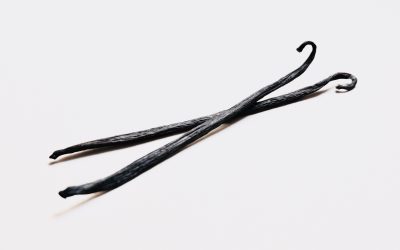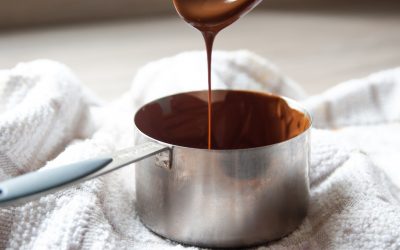5 Essential tips for beginner bakers
Starting out in baking can be a daunting process. This is my top 5 essential tips for beginner bakers to get you on the right path.
Just like learning any new skill it will take a while to get comfortable with how everything works. There are a few things you can do though to make the journey quicker and easier.
Below are the top 5 things that I see people neglecting. i’ll also cover hurdles to cross in order to be able to produce restaurant quality desserts.
Don’t be scared to make mistakes
This seems like obvious advice. But so many people stick to making the same old dessert they learned from a family member because it’s safe and easy.
It’s fine to have a signature dish, but mix it up a bit. Think that professionals don’t make mistakes? Then spend a day in our development kitchen where new dishes are tested. For every great dish there are 10 that didn’t work, but the mistakes are the things that lead to new ideas and recipes.
This is the same for following recipes, once you get comfortable with why certain ingredients are in specific dishes, then you can experiment to your heart’s content with replacements.
Want to change the water in our white bread recipe to make carrot bread? Go for it.
What if you want curry and carrot bread? Try adding a little curry powder to the mix and see how it affects the finished product.
How about some onion seeds on top to finish it off…
Get comfortable with the original recipe, test and compare! Repeat.
Seeing is better than reading
The difference between seeing someone make a recipe and reading about it in a book is night and day. Imagine trying to learn how to dance from a book. That gives a good idea of how hard it is to master pastry and baking work through written instructions.
Step right while bringing your left foot back.. Ok, but how much? How quickly? How far apart should they be? What am I doing with the rest of my body? … You get the idea…
Chefs make complicated recipes look easy because they can visualise how things should look throughout the process. Also it helps to know how to set your workspace up, so that everything is to hand when you need it.
The reason for this is because we have watched our mentors do it face to face. Learning first hand is easy because you just follow the same simple chain of steps when you can see it in your mind.
Just like copying dance steps. Of course it still takes practice but it’s a lot easier to copy when you can see it in front of you. This fact was the inspiration for opening The Online Pastry School. The reason that all our classes are filmed so that you can copy along and pause the video wherever you wish.
Just imagine how much easier cookbooks would be if the chef was standing next to you… Well you don’t have to imagine! Just click “membership” and sign up for a free month!
Use the freezer more
There is always a massive stigma around freezing things. The misconception is that anything that has been frozen is lower quality. The freezer is arguably the most important part of a pastry kitchen, especially ones that produce a lot of petit gateaux.
Freezing products is essential for anything that is going to be sprayed, glazed or layered which covers about 60% of the things you are going to make. Also, if you are producing a mixture of things each day it is impossible to make everything from scratch. Doing things in stages and big batches is the key to keeping up with demand in a busy kitchen, so anyone who says “real chefs don’t freeze things” has never had real experience in a professional kitchen.
The biggest worry is that it will affect the quality. This is a valid concern to have but all you need to know is what you can freeze and what needs to be made fresh.
What can and can’t I freeze?
The general rule is don’t freeze anything that is cooked. Choux pastry for example can be made, chilled and piped out and then frozen ready to cook later. This doesn’t affect the quality, however putting cooked choux buns in the freezer for example is a huge no no and will make them soggy and horrible.
The same applies for most things. You can do the hard work in your own time, making a big batch and then cook what you need fresh. So then you have perfect products but without going through the entire process each time.
Examples of what this works well for are biscuit doughs, shaped bread doughs, crumbles, doughnut dough, choux pastry (pipe your shapes before freezing), tart pastry (best kept in sheets), un-churned ice cream mixes and mousses.
Always make sure things are well covered in airtight containers or wrapped well with clingfilm. Don’t keep items in the freezer for more than a few months. The musty taste of the freezer can start to impart on things if left for more than a few months. This is also the reason to make sure things are stored properly.
Keep track of the recipes that work
It sounds an obvious one… but when the recipe is on your phone it seems as though you’ll always know where to find it. That never happens. As soon as you need a recipe it is always the one missing from the folder or the one on your old phone.
Take care to store all your good recipes in one place. Preferably online and as soon as you use them and realise they are good. Hundreds of good recipes have been lost from my own store over the years. I’ve taken a screenshot and thought “it’s ok, I’ll upload that later” and then changed phones.
Keep it simple
The most important thing when it comes to cooking in any form is keep it simple. The common belief is that the more complicated something is to make the better it is.
In a competition at the beginning of my career I decided to show off all of my skills on one plate and created a dish designed to incorporate everything I knew into one. It was an absolute disaster and still something that gets joked about today.
The funny thing is that if I had just taken three of those elements and kept it clean and simple I would have had a tasty, well presented dish. That would have shown my skill level better than putting every ingredient I could find on one plate.
I would have also had time to finish laying my table nicely which would have prevented another -20 marks.
Lesson learned.
But isn’t complicated better than simple?
Even in the world’s best restaurants the dishes may look overwhelmingly complicated… but even the most complex dishes are a collection of simple recipes done perfectly.
Don’t make things more complicated than they need to be. Trying out whacky flavours and over the top presentation will always end in disaster. Make sure it is something that has been tested and perfected before.
The main point though is that making it complicated will only ever make things worse. A perfect tart with a simple ice cream will always be more enjoyable than a dish with 17 rushed elements. This is even more true at home with limited space. You also want to be able to spend time with the people you have invited over rather than spending all night in the kitchen.
Keep. It. Simple.
That is my 5 essential tips for beginner bakers, but to find out more about simple desserts and recipes at home see: https://becomeapastrychef.co.uk/login-register/ for access to over 50 recipes for beginner, intermediate and advanced home cooks.
To get 33 more practical tips on starting out in the kitchen and getting the most out of your baking check out the blog below: https://www.buzzfeed.com/elenamgarcia/baking-tips-every-beginner-needs-to-know


